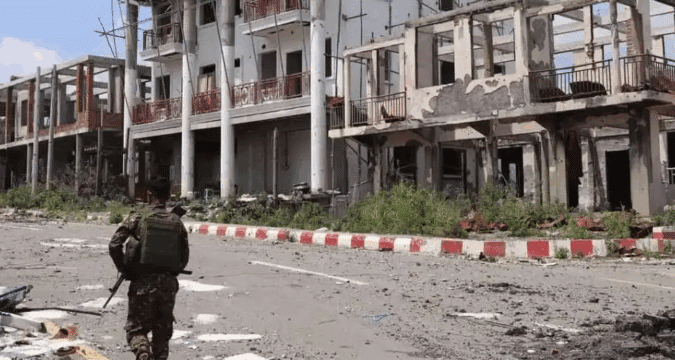
YANGON (LiCAS News): Auxiliary Bishop Francis Wai Lin Htun of Yangon urged national dialogue and international mediation to end Myanmar’s protracted civil conflict. He said the war has caused “great suffering for the entire nation,” Fides reported.
Bishop Wai said, “Our goal is to promote a national dialogue everywhere to find a way out of the conflict that has been going on for four years and is causing great suffering for the entire nation, for people’s livelihoods, for education, for the economy, and for the future of young people.”
The bishop said the country is “trapped by this internal violence,” adding that “dialogue is the only solution for a perspective of ceasefire and peace.”
He, however, said that it would require “external mediators and facilitators” to initiate the dialogue.
War’s impact on local communities
The bishop is located in central Myanmar, in a region under military control but still affected by waves of displacement.
He said all 14 parishes under his pastoral care are “affected in some way by the phenomenon of internally displaced people who continue to arrive” from conflict zones.
Our goal is to promote a national dialogue everywhere to find a way out of the conflict that has been going on for four years and is causing great suffering for the entire nation, for people’s livelihoods, for education, for the economy, and for the future of young people
Bishop Wai
“We are living in this dramatic situation, and all we can do is offer welcome and comfort,” he said.
Bishop Wai added that many of the displaced arrive seeking safety, with some finding shelter through relatives or friends, while others are left wandering in search of temporary refuge.
The Catholic community has responded by extending solidarity and humanitarian aid, offering support through both material assistance and presence.
Balancing ties with the junta
The bishop acknowledged the delicate position of Church leaders in dealing with state authorities.
“It is not easy to live in this environment marked by injustice and violence, to find oneself between the warring parties,” he said.
“As bishops, we must maintain relations with the ruling military junta and state institutions, even just to be able to leave the country and participate in pastoral meetings of the Church in Asia or of the Holy See,” Bishop Wai explained.
As bishops, we must maintain relations with the ruling military junta and state institutions, even just to be able to leave the country and participate in pastoral meetings of the Church in Asia or of the Holy See
Bishop Wai
However, the bishop clarified that it does not mean that “we endorse a state of war or are close to the military power; it is simply a functional necessity.”
Faith, justice, and resilience
He emphasised that the Church draws from its social teaching to navigate the crisis, acting responsibly for the good of the faithful and working to advance peace throughout Myanmar.
“The principle of justice inspires us to be close to those in need, the weakest, most vulnerable, and sick, those most affected by the current conflict. For this reason, priests are also constantly striving to assist the displaced and provide them with material and spiritual assistance,” he said.
He underlined the importance of closeness and pastoral presence, noting that visits to the sick reveal how much listening, encouragement, and blessing matter in sustaining people amid Myanmar’s difficult circumstances.
Despite the hardships, he pointed to the resilience of the faithful. He noted how their faith remains vibrant and strong even amid suffering and immense challenges.
He said the Jubilee reminded communities of the meaning of hope, a word that carries special weight for young people, many of whom struggle with discouragement and the desire to leave the country.
“Every day we ask ourselves: How can we do God’s will? What can we do in these circumstances? The answer is: to hope in the Lord and praise him, to continue to pray and remain in communion with other faithful around the world, so that they may support us with their prayers for peace; and so that we too may remember the many other conflict zones around the world where fighting is taking place and people are dying,” he said.








